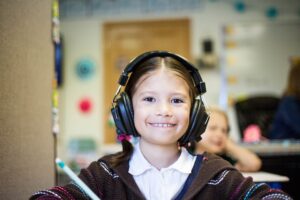
God created us to be social beings, and we need connection with others like we need oxygen. Sadly, during the COVID-19 shutdowns, loneliness struck with a vengeance, and we realized that our mental and physical health, and even our ability to learn, are significantly impacted by our interactions with fellow human beings.
Social learning encompasses two aspects: learning with and from others. Think of it as joining a community where you not only soak up knowledge and learn skills but also observe the behavior of those around you and model it. It’s like watching a bunch of adorable puppies learning good manners and pack norms from their fellow furry friends. However, not every environment is a puppy paradise. Take off-leash dog parks, for instance. They might provide an emergency vet’s job security, but they’re not exactly the best place to socialize your puppy. Why, you ask? Well, there’s a risk of learning bad behaviors and even getting hurt.
Now, let’s tackle a persistent myth about homeschooling. People often assume that homeschooled kids aren’t “socialized.” They think public schools are the holy grail of social skills education and social connection. But hang on a second! Some public schools can be downright toxic cesspools of chaos, devoid of any godliness. In these places, kids feel unsafe, their values are ridiculed, and their identities are challenged or even despised. Despite being surrounded by peers, they can end up feeling lonely and disconnected. These schools are like those off-leash dog parks but for humans. Not the kind of place you’d want your kids to learn social skills, right?
In stark contrast, homeschooling parents are the champions of social opportunities for their children. They create a network of family life, church, sports, jobs, and neighborhoods where social skills are honed in a much more healthy way because they have better models.
- Family life is like a crash course in sibling diplomacy, submitting to authority, pulling their own weight, playing, negotiating, loving, sacrificing, putting the needs of others ahead of their own, laughing, crying, and serving God with gusto.
- Church is more like a hospital than a country club, filled with imperfect people whom kids learn to serve and love sacrificially. It’s where kids deepen their understanding of God and build healthy relationships with mentors.
- Sports is the ultimate training ground for teamwork, collaboration, sacrifice, and the rollercoaster ride of victory and defeat. Failures and successes are shared with others, creating bonds and memories that last a lifetime. Parents are right there with them helping them understand the fallen nature of man, how to deal with conflict, and how to please God even in a community of people with different values.
- Jobs—when kids reach the age to work, it’s time to dive into the world of jobs. They learn the art of treating customers with respect and kindness, even in the face of mistreatment. They discover the importance of hard work, effective communication, submission to authority, money management, and so much more. My own kids even mastered the fine art of smiling, making eye contact, and engaging in delightful conversations with strangers at our local Chick-Fil-A. It was “their pleasure!” 😉
- Neighborhoods become the place for adventurous kids on bikes. They explore fields, play street hockey, engage in the occasional argument, and learn the art of conflict resolution. It’s a playground where they discover the magic of solving problems together.
But what about education? Skilled homeschool moms and dads know how to create social learning opportunities for their kids as their children learn with and from siblings, extended family, and in online classes, co-ops, micro-schools, local pods, and other exciting new ways.
Welcome to Lemons-Aid Learning, where students have a positive community in virtual classrooms! We’ve mastered the art of social learning, ensuring that our students not only acquire knowledge but also thrive in a supportive community. Whether students are discussing grades with teachers, cheering on fellow students during presentations, praying together, or meeting deadlines with finesse, our platform provides a healthy environment for social growth. Get ready to embark on an unforgettable educational adventure where learning and camaraderie go hand in hand. It’s the Lemons-Aid Way.






